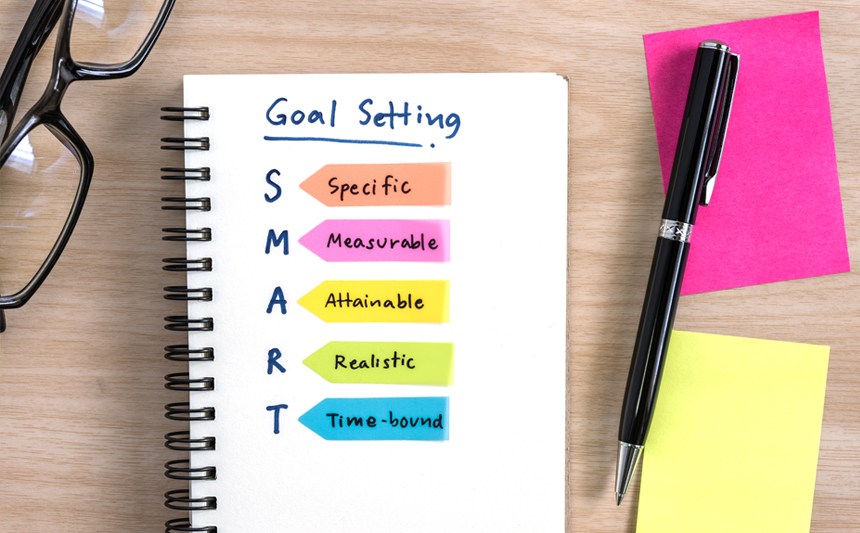
Goals are great. We should all have goals. Goals help us to focus our energy, form plans, live a purpose-centred life, and give us a feeling of accomplishment. What do I want to do with my life? Where will I go on vacation? What will I do tomorrow? What will I do today? What will I have for lunch?
I recently wrote about something that I call the domino theory of goal-setting. Using this strategy, goals are like dominoes and our pathway is defined by how we set up our own personal dominoes. Advantages of this method of goal-setting are that it is a mindful approach which focuses on process over outcome and gain over blame. But how do you set up these dominoes and establish goals? What goals are worth establishing? Am I wrong or a failure if I keep changing my dominoes?
The answer to these questions delves into the definition of goals. A goal is an observable and measurable end result that you intend to achieve or accomplish. A well-planned goal also includes some sort of timeframe. Which goals should be considered important? Obviously, everyone needs to answer that question for themselves. However, a general rule that I’ve found to be most important in doing this; goals should be based on your core principles and values. People often confuse values and goals, while in fact they are quite different; a value is not a goal.
Values are meaningful beliefs or philosophies which can vary from ethical/moral, such as the belief in equal rights for all, honesty, concern for others, tolerance, justice, fairness, goodwill, gratitude, forgiveness, privacy, or kindness, to ideological, such as self-reliance, innovation, knowledge, security, perseverance, personal growth, accountability, commitment, hard work, or resilience, to social, such as generosity, teamwork, communication, efficiency, competition, health, independence, reliability, collaboration, or leadership, to aesthetic, such as creativity, prosperity, beauty, serenity, adventure, fun, or happiness.
Values are powerful and effective determinants of human accomplishment and progress. They represent our deepest desires: what we want to stand for, how we want to relate to the world, and how we want to be remembered. They reflect our sense of right and wrong and what we believe should be. In so far as values have the power to influence our behavior, they should be one of the predominant determinants of how we choose our goals and set up our dominoes. We all need to make a greater conscious effort to make sure that our goals are in accordance with our values.
Why is it so important to establish value-centered goals?
- While goals may change, values are more often anchoring and consistent.
- They connect us to a greater purpose in life.
- They differentiate the important from the unimportant.
- They are an inexhaustible source of motivation and energy.
- They allow us to live a dynamic and vital existence.
- They drive our lives in a positive direction and move us forward.
- They provide an internal and personal reference for what is useful, beneficial, and desirable.
- Collectively, they lay the foundations for societal laws, customs, and traditions.
I can’t say it better than did bestselling author and time-management guru, Dr. Stephen Covey who has boiled it down to: To live, To love, To learn, and To leave a legacy. The rest, as they say, is commentary.
How to create value-based goals?
1) Write out a short list of beliefs and principles that have thus far shaped your life.
2) What beliefs and ideals currently motivate you and drive your life today?
3) What are your strongest values and principles?
4) List some of your current goals, including those at home, work, relationships, family, health, physical, spiritual, personal, etc.
5) Divide those goals into what is urgent and what is not urgent.
6) Now divide the two urgent/non-urgent lists into what is important and what is not important. The decision of importance is based on your values and principles. Goals that are congruent with or supportive of your values are, by definition, important. Again quoting from Stephen Covey, “The Main Thing is to keep the main thing, the main thing”. Focus on what is important and urgent, then move to important and not-so-urgent. Try to get rid of, or at least reduce time and energy spent on non-important, non-urgent items. These are often distractions and time/energy wasters.
As an example of value-based goals; if you value your individuality, your goals may include starting your own business, owning your own home, or working a second job, while putting yourself through school. Those who value individuality, will take responsibility, be self-reliant and act with self-respect while working toward accomplishing all of their goals. So while you may rearrange your dominoes by changing the type of business, or owning a condo instead of a home, the larger goal of pursuing the value of individuality will persist.
Values determine our decisions and guide our lives. The more that we choose our goals based on our values and principles, the more we enter into a positive cycle of energy, success and satisfaction.
Also see: The Joy of giving
